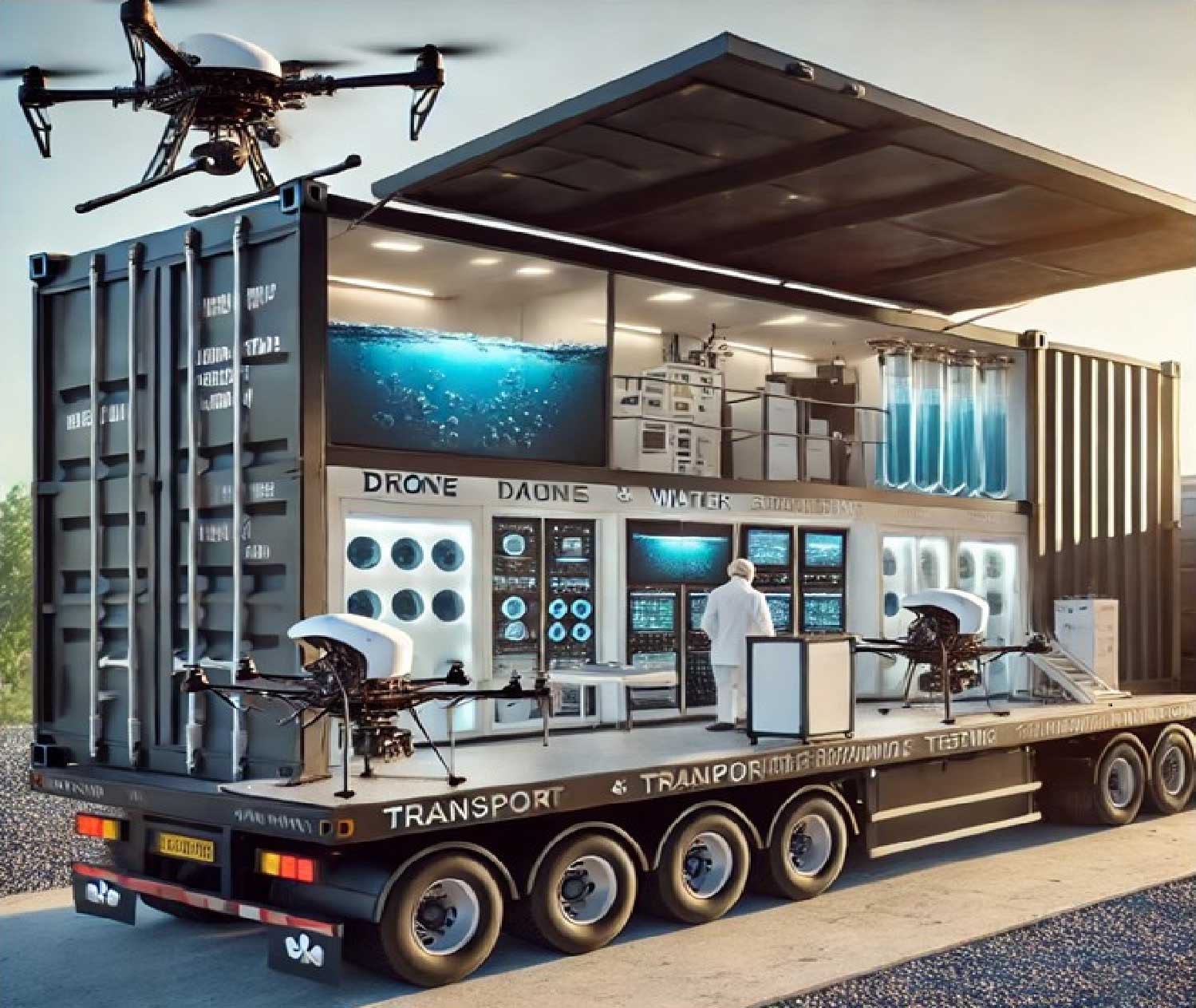Winners of Ofwat’s fifth Water Breakthrough Challenge announced
Ofwat has announced the winners of this year’s Water Breakthrough Challenge, with sixteen recipients set to receive a share of £42.7 million ($57.24 million) to scale solutions targeting the industry’s biggest challenges. Backed by the Ofwat Innovation fund, which supports cleantech projects within the UK water sector, winners include applicants leveraging Artificial Intelligence (AI), satellites, robotics and drones[i].
The Ofwat Innovation Fund is investing £600 million over 10 years, running from 2020 to 2030. Alongside Ofwat’s funding, winners are required to put up at least an additional 10% themselves, with the total value of money going into this year’s winning projects being £48.8 million ($65.42 million). Winners are later required to share findings from funded projects openly to ensure progress can be built upon by all water companies.
ZCA outlines they key features of some of the winning projects below:
Project name: Smart Skies, Healthy Waters

Source: Ofwat
Project owners: Northumbrian Water, Newcastle University, Skyports Drone Services, Proteus Instruments, and Makutu IO
Technology: Drones, on-site laboratory
Amount awarded: £6 million ($8.04 million)
Smart Skies, Healthy Waters brings together the use of automated drones, robotics, and sampling (including a portable on-site laboratory) to improve coastal water monitoring. The project aims to increase the monitoring and sampling frequency of coastal waters, significantly cutting the time to deliver results, from up to three days to a matter of minutes, meaning customers can access near live updates on bathing-water quality.
Project name: Space Eye
Project owners: Five water companies in England & Wales led by South Staffordshire Water, University of Wolverhampton, Scottish Water, Quub, and Spring
Technology: Satellites, machine learning
Amount awarded: £1.3 million ($1.74 million)
Space Eye seeks to utilise satellite technology to transform monitoring within the water industry. The project includes the design, launch and operation of micro-satellites to provide continual imaging of the water pipe network of the entire United Kingdom. Machine-learning algorithms will then enable Space Eye to locate issues within the water network. This includes the rapid location of leaks which are visible on the surface, identification of water wastage from unauthorised or unnecessary water use, and analysis of surface water to check whether harmful chemicals are impacting water quality. This will help water companies fix problems quickly, resulting in fewer delays for customers affected by water supply issues, reduce costs, and minimise disruption.
Project name: SandSCAPE

Source: Ofwat
Project owners: Four water companies led by Thames Water
Technology: Robotics
Amount awarded: £2 million ($2.68 million)
SandSCAPE is a collaboration between four UK water companies. The project uses tank-like robots which are up to 5 metres in length to apply ‘slow sand filtration’ at scale. Slow sand filtration is a highly effective, chemical-free and nature-based solution for cleaning water. However, traditionally the system would require sand filters to be regularly drained to remove captured particles making the process somewhat inefficient and time consuming. Where SandSCAPE differs is that the robots being tested will clean their sand filters underwater, while in operation. Effective, chemical-free alternatives for water purification will benefit the environment while maintaining the highest water quality standards for consumers.
Project name: Pedal
Project owners: South West Water, NASA Bioscape, the University of Exeter, Cardiff University, and others
Technology: Remote sensing using satellites and drones, AI
Amount awarded: £2 million ($2.68 million)
Pedal uses a combination of satellite and drone remote sensing, artificial intelligence, conventional water quality monitoring, and input from citizen science to build a digital twin that can forecast Harmful Algal Blooms (HABs) which lead to poor water quality and ecosystem loss, therefore enabling water companies to take preventative action faster.
Project name: TORCH
Project owners: Anglian Water, Peterborough City Council, the universities of Sheffield and Exeter and Noventa Energy
Technology: AI
Amount awarded: £1 million ($1.34 million)
The Anglian Water-led project ‘TORCH’ utilises AI to enable heat recovery from sewers and wastewater facilities for re-use in district heating networks. This then supplies heat to consumers from a central source via a network of underground pipes, providing lower cost heating, cutting carbon emissions and helping to improve the performance of sewer assets.
Announcing the recipients of this year’s funding, David Black, CEO of Ofwat said:
“Water underpins our society and economy, and the water sector faces a range of challenges requiring urgent solutions. The Ofwat Innovation Fund was established five years ago to incentivise the water sector to collaborate with partners across industry, charities, and academia to accelerate the pace of transformation and create lasting benefits for customers and the environment.”[ii]
He added: “The level of ambition of this year’s winners – including deploying robots, drones, satellites and state-of-the-art artificial intelligence – is remarkable. The 16 winning projects involve 15 water companies working with 70 partners – from world-class universities to engineering powerhouses, environmental charities and even NASA. We are supporting these projects to prove their impact so that they can be scaled, not only here in England and Wales, but exported around the world as a driver of economic growth”.
You can find out more about the sixteen winners here: Satellites, Robots, Drones and AI among winners of Ofwat’s fifth Water Breakthrough Challenge - Ofwat
References



%20(1).png)


